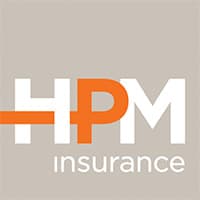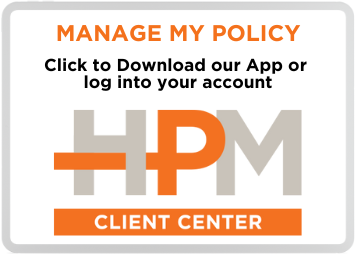 Small business owners have a lot to juggle. They may be responsible for everything necessary to run the actual business, dealing with sales, dealing with clients and maybe even emptying the trash. Funds may be limited but so is their time. Because of this, it is important to have a basic understanding of what any small business may need for liability insurance.
Small business owners have a lot to juggle. They may be responsible for everything necessary to run the actual business, dealing with sales, dealing with clients and maybe even emptying the trash. Funds may be limited but so is their time. Because of this, it is important to have a basic understanding of what any small business may need for liability insurance.
A small investment in time can save a small business a lot of money in the long run by understanding what the business needs, or does not need, in regards to insurance.
5 Tips for Understanding Small Business Insurance
1. There is a wide variety of commercial liability insurance available:
A very broad type of insurance available for commercial liability is called Commercial General Liability, aka CGL. This is the foundation for most organization's liability insurance program. It typically covers claims from accidents, injuries or negligence when a business is found liable, as well as the defense costs associated with the claim, including:
Premises liability: typically covers the liability arising from the ownership, occupancy or use of a specific premise. For example, a customers slips on a wet floor.
Operations liability: typically covers the liability for injury or damage due to activities. It is generally associated with manufacturers, processors or contractors. For example, a passerby at a contractor's job site is injured while an employee of contractor accidentally drops a hammer while working on scaffolding above the sidewalk.
Products and Completed Operations Liability: This exposure is the possibility that an organization will be held liable because of bodily injury or property damage caused by an accident from a product manufactured, sold or distributed by a business or occurring after the product is no longer on premises.
It can also cover an accident from an organization's completed work, including defective parts. For example, a patient gets extremely ill because of impurities in a medicine sold by pharmaceutical company or a home is damaged by an electrical fire resulting from electrical work previously completed by a contractor.
A business's liability for products or completed operations can depend on the circumstances of the claim as well as the details of the event; however, given the potential severity of such losses, it is a critical coverage to discuss with your insurance professional.
If you have a business that is small to medium sized and have a relatively uncomplicated risk, you may be eligible to purchase a Business Owners Policy (aka BOP). This is a packaged policy that can meet the needs of many small businesses that may include coverages like building coverage, business personal property, business income and extra expense. Coverages can vary by company so it is important to understand what is and is not covered on your specific policy to ensure there are not any coverage gaps. 2. The type of business may influence how much the policy costs: Insurance companies classify businesses in many different categories which play a key role in determining premium. The fireworks store will pay more in insurance than the clothing boutique given there is simply more risk for the fireworks shop. Companies often look at the number of claims made by similar businesses to factor into the premium.
2. The type of business may influence how much the policy costs: Insurance companies classify businesses in many different categories which play a key role in determining premium. The fireworks store will pay more in insurance than the clothing boutique given there is simply more risk for the fireworks shop. Companies often look at the number of claims made by similar businesses to factor into the premium.
The company will also look at the size of the business' payroll or past sales figures or anticipated sales in the future, to determine premium. It is critical to understand that many commercial policies are auditable, which means that the company will most likely ask for your company records to determine the actual premium to be paid at the end of the policy term. Since no one knows exactly what will happen in the future, your quote will be an estimate based on what you expect your business to do in the coming year. If you do more than anticipated, you may owe the insurance company more money, but if less, than you may receive money back. Because of this fact it is extremely important to keep accurate accounting records.
3. Liability insurance does not cover everything: General liability does not cover an employees' work-related injuries and illnesses, as workers' compensation coverage usually provides benefits for such expenses (as required by law). This pertains to full-time or part-time, temporary, volunteers or even family members that work for you. Liability coverage also does not cover intentional acts or damages sustained from those acts. Employee fights, criminal activity and fraudulent behavior are some examples of intentional acts. It also does not cover quality of workmanship. For specifics about what is and is not covered, speak with an insurance professional.
4. Liability insurance may be a requirement: Though auto insurance is not required in NH, if you ever drive out of state, you would be subject to that state's auto insurance requirements given you are on their roads. If your business "owns" the car your drive, then you would need to ensure you have a business auto policy as the title and registration must match the insurance policy.
Many contracts you enter into with clients may also require you to prove you have liability insurance via a certificate of insurance. The contract will typically indicate which limits are required as well as any other conditions that may transfer your client's liability to you. It is important that you do not blindly sign a contract but instead bring it to your attorney or insurance professional to ensure you are not promising something you can not deliver.
5. It is possible to decrease risk: A small business lives and dies by its reputation. If your company does all that it can to prevent a loss from happening in the first place, it can reduce bad PR, as well as stress and a potential claim. You may also benefit from reduced premiums if you can show you have taken measures to reduce or eliminate the chance of loss with such things as sprinklers, or employee safety training programs.
Hopefully you found the above information useful, but as you can see it is a lot to consider. This information should be used to get a conversation going with an insurance professional as only you know the ins and outs of your business and hence what is at stake.


